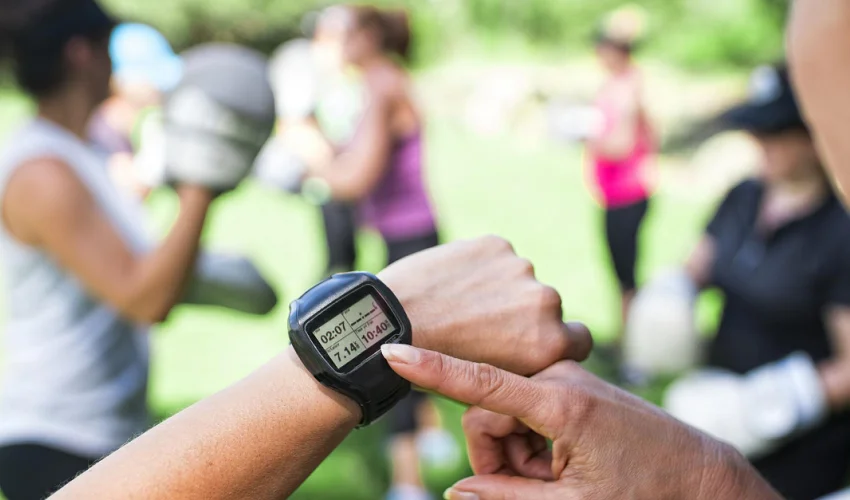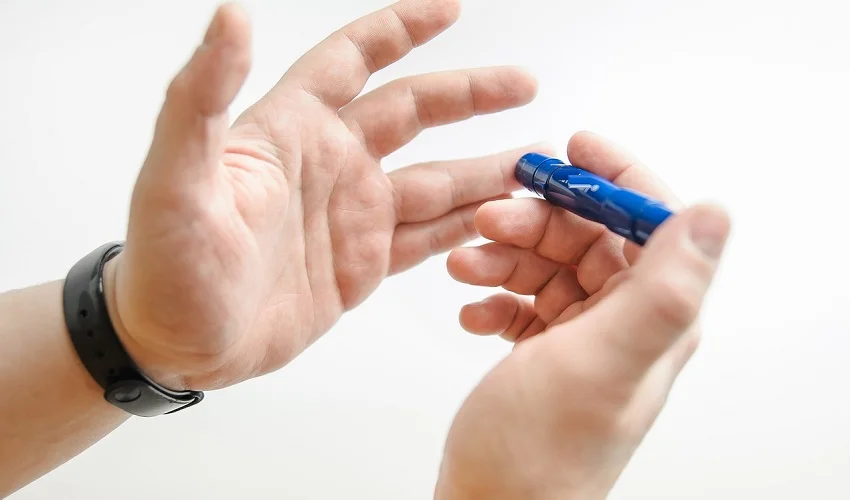Living with diabetes can be challenging, both physically and emotionally. The daily management of blood sugar levels, medication routines, and dietary restrictions can contribute to stress and affect the overall quality of life for individuals with diabetes. Mindfulness-based stress reduction (MBSR) techniques offer a promising approach to help manage stress, improve well-being, and enhance diabetes self-care. In this article, we will delve into the concept of mindfulness, explore the benefits of MBSR for diabetes, and provide practical strategies for incorporating mindfulness into the lives of individuals with diabetes.
Understanding Mindfulness
Mindfulness is the practice of purposely paying attention to the present moment with non-judgmental awareness. It involves bringing one’s attention to the sensations, thoughts, and emotions occurring in the present without getting caught up in judgments or reactivity. By cultivating mindfulness, individuals can develop a greater sense of self-awareness and learn to respond to life’s challenges with clarity and equanimity.
Defining Mindfulness
Mindfulness can be defined as a mental state characterized by non-judgmental awareness of the present moment. It involves observing thoughts, feelings, bodily sensations, and the surrounding environment without attachment or aversion.
Historical Roots of Mindfulness
The practice of mindfulness has deep historical roots, originating from ancient contemplative traditions such as Buddhism. Over time, mindfulness has been integrated into secular contexts and gained recognition for its therapeutic benefits.
Core Principles of Mindfulness
Mindfulness is guided by certain core principles, including non-judgment, acceptance, beginner’s mind, letting go, and non-striving. These principles help individuals cultivate an attitude of openness and compassion towards themselves and their experiences.
Mindfulness vs. Meditation
While mindfulness and meditation are related, they are not interchangeable terms. Mindfulness refers to the state of awareness, while meditation encompasses formal practices that cultivate mindfulness, such as focused attention or loving-kindness meditation.
The Impact of Stress on Diabetes
Stress can significantly impact diabetes management and overall well-being. When stressed, the body releases stress hormones such as cortisol and adrenaline, which can lead to blood sugar imbalances. Additionally, chronic stress can contribute to emotional and psychological distress, affecting one’s ability to effectively manage diabetes.
Stress and Blood Sugar Levels
Stress triggers the release of hormones that increase blood sugar levels, as the body prepares for a “fight-or-flight” response. This can be particularly challenging for individuals with diabetes who already struggle to maintain stable blood sugar levels.
Psychological and Emotional Effects of Stress
Chronic stress can negatively impact mental health, leading to symptoms of anxiety, depression, and burnout. Diabetes-related stressors, such as fear of complications or the burden of self-care, can further exacerbate emotional distress.
Stress and Diabetes Management
Stress can hinder effective diabetes management by impeding adherence to medication routines, healthy eating habits, and physical activity. Moreover, stress may contribute to unhealthy coping mechanisms such as emotional eating or neglecting self-care practices.
The Vicious Cycle: Stress and Blood Sugar Imbalances
The relationship between stress and blood sugar imbalances forms a vicious cycle. Stress can lead to elevated blood sugar levels, which in turn can cause additional stress and emotional distress. Breaking this cycle is crucial for optimal diabetes management.
Mindfulness-Based Stress Reduction (MBSR)
Mindfulness-Based Stress Reduction (MBSR) is an evidence-based program developed by Jon Kabat-Zinn in the late 1970s. Originally designed for individuals with chronic pain, MBSR has been adapted for various populations, including those with diabetes.
Overview of MBSR
MBSR is an eight-week program that combines mindfulness meditation, gentle yoga, and mindfulness practices in daily life. It aims to cultivate greater self-awareness, develop coping strategies, and reduce stress reactivity.
The Development of MBSR for Chronic Conditions
Recognizing the potential benefits of mindfulness for individuals with chronic illnesses, MBSR was adapted to address the specific needs of those managing conditions such as diabetes. MBSR programs tailored for diabetes focus on integrating mindfulness into self-care practices and emotional well-being.
Key Components of MBSR
MBSR incorporates various components to support participants in developing mindfulness skills, including body scan meditation, sitting meditation, mindful movement, and informal mindfulness practices. These components work together to foster present-moment awareness and cultivate a compassionate attitude towards oneself and one’s experiences.
Scientific Basis of MBSR
Numerous studies have examined the effectiveness of MBSR for individuals with diabetes. Research indicates that MBSR can lead to reduced stress levels, improved emotional well-being, enhanced self-care practices, and better glycemic control.
Benefits of MBSR for Diabetes Management
MBSR offers a range of benefits that can positively impact the lives of individuals with diabetes, supporting their overall well-being and diabetes management.
Stress Reduction
- Cortisol and Stress Response: MBSR has been shown to reduce cortisol levels, the primary stress hormone associated with increased blood sugar levels.
- Mindfulness and Stress Reduction: By cultivating mindfulness, individuals can develop a more adaptive response to stressors, reducing the physiological and psychological impact of stress.
- Impact on Blood Sugar Control: Reduced stress levels can contribute to better blood sugar control, minimizing fluctuations and lowering the risk of long-term complications.
Emotional Well-being
- Mindfulness and Emotional Regulation: MBSR promotes emotional regulation by increasing awareness of one’s emotions and developing non-reactivity and acceptance.
- Coping with Diabetes-Related Distress: Mindfulness can help individuals navigate the emotional challenges of living with diabetes, improving coping skills and reducing distress.
Improved Self-Care Practices
- Enhanced Medication Adherence: Mindfulness practices can foster mindful awareness of medication routines, promoting better adherence and medication management.
- Healthier Dietary Choices: Mindful eating practices help individuals develop a more conscious and attuned relationship with food, supporting healthier eating habits and portion control.
- Increased Physical Activity: Mindfulness can enhance awareness of the body and facilitate the integration of physical activity into daily routines, contributing to improved fitness and blood sugar management.
Better Glycemic Control
- Impact on HbA1c Levels: Studies have shown that participation in MBSR programs can lead to significant reductions in HbA1c levels, an important marker of long-term blood sugar control.
- Reduction in Diabetes-related Complications: Improved glycemic control resulting from MBSR can lower the risk of diabetes-related complications, such as cardiovascular disease and neuropathy.
Practical Strategies for Incorporating Mindfulness
To incorporate mindfulness into daily life, individuals with diabetes can explore various practical strategies tailored to their unique needs and preferences.
Mindful Eating
- The Importance of Mindful Eating for Diabetes: Mindful eating cultivates awareness of hunger, satiety, and food choices, supporting better blood sugar management and healthy eating habits.
- Mindful Eating Techniques: Techniques such as eating slowly, savoring flavors, and paying attention to physical cues can enhance mindful eating practices.
Body Scan Meditation
- Benefits of Body Scan Meditation: Body scan meditation promotes relaxation, body awareness, and the release of tension, reducing stress and enhancing well-being.
- How to Practice Body Scan Meditation: A step-by-step guide on practicing body scan meditation, including finding a comfortable position, focusing on body sensations, and cultivating a non-judgmental attitude.
Mindful Breathing
- The Power of Breath: Breath awareness is a fundamental aspect of mindfulness practice, offering a simple yet effective tool for managing stress and cultivating presence.
- Techniques for Mindful Breathing: Breath-focused techniques, such as deep belly breathing or mindful breathing breaks, can be incorporated into daily routines to foster mindfulness.
Mindfulness in Daily Activities
- Bringing Awareness to Routine Tasks: Infusing mindfulness into everyday activities, such as washing dishes or brushing teeth, can promote present-moment awareness and reduce stress.
- Incorporating Mindfulness into Exercise: Mindful movement practices, such as mindful walking or yoga, can enhance physical activity while fostering a mind-body connection.
- Mindfulness in Social Interactions: Applying mindfulness to social interactions can improve communication, empathy, and emotional well-being.
Seeking Professional Guidance
While self-guided mindfulness practices can be beneficial, seeking professional guidance can further enhance the integration of mindfulness into diabetes management.
MBSR Programs and Classes
Participating in structured MBSR programs or classes, led by experienced instructors, can provide a supportive environment for learning mindfulness skills and sharing experiences with others.
Finding Mindfulness-Based Healthcare Providers
Some healthcare providers specialize in mindfulness-based approaches to diabetes management. Seeking out these professionals can offer personalized guidance and support.
Online Resources and Mobile Applications
Various online resources and mobile applications offer guided mindfulness practices and educational materials specific to diabetes management. These resources can be accessible and convenient for individuals seeking to incorporate mindfulness into their daily lives.
Incorporating mindfulness-based stress reduction techniques into the lives of individuals with diabetes can provide numerous benefits for overall well-being and diabetes management. By reducing stress, improving emotional regulation, and enhancing self-care practices, mindfulness can contribute to better glycemic control and a higher quality of life for those living with diabetes. Embracing mindfulness as an integral part of diabetes self-care can empower individuals to cultivate a healthier mindset, improve their relationship with diabetes, and navigate the daily challenges with greater resilience and peace of mind.




